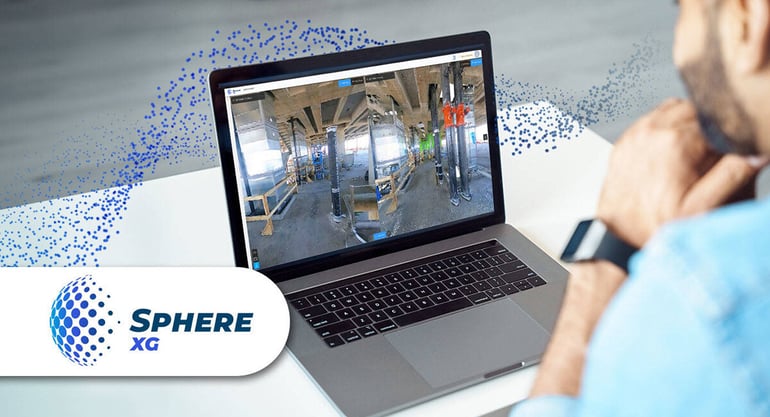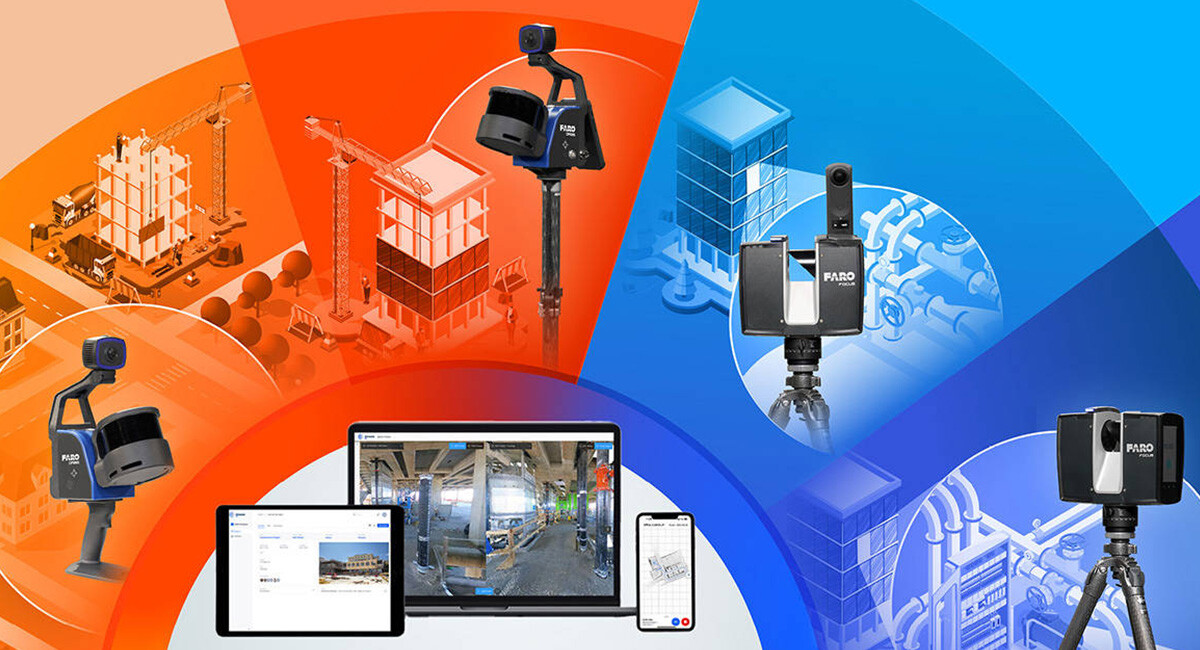Over the course of 71 years a lot of changes can happen. Some of them encouraging. Some of them less so. In 1953, for instance, Speedcode, the first high-level programming language created for an IBM computer launched, helping pave the way for the supercomputers that we take for granted today.
Original Source - FARO Technologies

Also in that year, the Soviet Union tested a precursor to a thermonuclear device, adding to a then-nascent stockpile. Lasers, the technology that underpins so much of the measurement machines FARO produces and that third parties like Ferguson, the largest U.S. distributor of plumbing supplies, PVF, waterworks and fire and fabrication products increasingly relies on, was only in the theoretical stage; seven years out from its first practical test.
In the decades that followed Speedcode became obsolete, the Soviet Union crumbled, and lasers, in effect, took over the world, embedded into billions of products on land, sea, air, and space. And throughout all that time, Ferguson plc (NYSE: FERG; LSE: FERG), also founded in that signature year, has celebrated 71 birthdays since and shows no signs of slowing down.
Success Builds Success
Part of that success relies on the company’s ongoing commitment to innovation. And its desire to partner with companies like FARO® who are dedicated to delivering the very best that reality capture hardware, software and SaaS (software as a service) has to offer.
By accurately and quickly capturing the as-built condition of a physical space and rendering that space in a 3-dimensional digital domain via point-cloud conversion, companies like Ferguson and their customers, can better ensure proper alignment and placement of a wide variety of physical assets, ranging in size from the very small to the very large. Connected to cloud-based services like FARO’s Sphere XG, this data can be shared, tracked and monitored by key project stakeholders anywhere in the world. All in real time.
For the last five years, FARO and Ferguson have embarked on a partnership where the two companies benefit each other.
Ferguson transforms its business model, streamlining workflows, with a host of FARO equipment, including eight FARO Focus Laser Scanners, the new FARO® Orbis™ Mobile Laser Scanner, FARO® BuildIT Construction Software, and access to the recently upgraded Sphere XG, a cloud-based digital reality platform that provides its users a centralised, collaborative experience across the company’s reality capture and 3D modeling applications. FARO, meanwhile, has a powerful opportunity to provide a trickle-down impact on numerous sub industries of which Ferguson supports, including, but not limited to:
- Plumbing
- HVAC installation
- Waterworks
- Fire and fabrication
- Residential and commercial building projects
- Government, infrastructure, municipalities
“If you think about any construction environment, you're going to have measurements from point A to point B,” explained Keith Alcorn, a Ferguson Engineering Specialist and Reality Capture Manager in a recent interview with FARO. “And what scanning allows us to do, is to go on to an existing jobsite and collect the data from that environment. It's gathered in its entirety, where field operators can come back, bring the data into a controlled environment, the shop and office, and then start 3D modeling through and around that scan because it collects everything from the flange of a pump over to the existing connection of a valve.”
Spheres of Influence
In addition to hardware like the FARO Focus Laser Scanner, which includes Hybrid Reality Capture™, powered by Flash Technology™, a scan mode that combines the accuracy of a 3D scan with the speed of a panoramic camera, and FARO Orbis, Powered by GeoSLAM’s proprietary SLAM algorithm, the company and its subcontractors, also takes 360-degree panoramic photos for general site documentation. Used as part of what Alcorn calls a “field audit kit,” site documentation can take place much earlier in the project scouting process and in a far more coordinated manner than what was once possible.
“It kind of makes us sticky with the client – the likelihood of a customer staying loyal to a brand – and then we just carry the client with us through the whole process,” Alcorn said. “And then when we start going down the road of using LiDAR scanners, like the Focus, using the larger format scanners, we'll scan the environment and then we inevitably will model in that environment, and we can bring it all together in Sphere XG.”
Arguably it’s this all-in-one hardware, software, SaaS ecosystem that Alcorn and the Ferguson team admire most. Not only that, but unlike competitors, data uploaded to FARO’s cloud platform is wholly owned by the company performing the upload. As a result, customers have full access to viewing and managing the data.
While it’s difficult to quantify how much time, money and labor savings FARO technology helps enable at Ferguson, or for their customers, Alcorn estimates the collective gains are significant, describing it as a mass multiplier effect. If Ferguson can gather the information faster, that's more accurate and they can get that data into the shops faster then they can provide their customers with a more expedient return.
Future Forward
As of this article’s publication, Ferguson has announced a renewed 3-year FARO partnership. Together, the two industry leaders hope to shape the future of 3D laser scanning and the infrastructure, plumbing, appliances, HVAC, fire and fabrication industries they help support.
While a single ecosystem of hardware and software is where the current conversation lies (versus the siloed nature of data collection), future discussions revolve around building single devices that can essentially “do it all.”
Whether that’s a benefit for the industry at large, or a non-specialised tool that promises to be too many things for too many users, is a topic for a follow-up article.
“All I can say is that I’ve been in this industry long enough, and I’ve seen plenty of people trying to use a wrench when they need a screwdriver,” Alcorn said. “But I do support the increased use of scanning and reality capture in such a manner that anybody can use it in any circumstance.”



